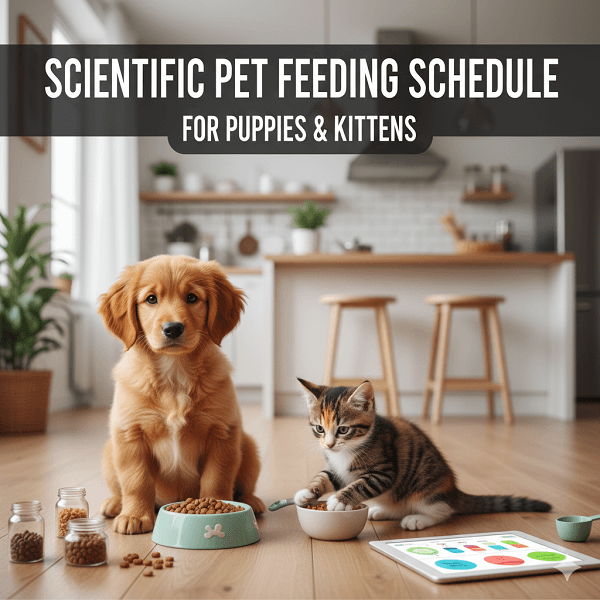What Is a Smart Pet Feeder?
A smart pet feeder is a device that automatically feeds your pet on a schedule. It uses technology to make feeding easier, especially when you’re not home. This saves you money on pet boarding and ensures your pet never misses a meal.

How Does It Work?
Here’s a simple breakdown of how an automatic pet feeder functions:
1. Set a Feeding Schedule
You can program the feeder to release food at specific times. This can be done using:
The control panel on the device
A smartphone app (for Wi-Fi-enabled models)
You decide:When your pet gets fed
How much food is given
This helps maintain a healthy, consistent diet for your pet.
2. Food Storage
The feeder has a sealed container to keep food fresh.
Works best with dry kibble (dog or cat food)
Often includes a desiccant box (absorbs moisture to prevent mold)
The desiccant never touches the food directly
3. Food Dispensing
At the scheduled time, the feeder releases the right amount of food.
Common mechanisms include:
Rotating disk
Conveyor belt
Squeezer system
A stirring bar prevents clogs so food flows smoothly.
4. Power Options
Most feeders need electricity but have backup options:
Plug-in (for daily use)
Batteries (in case of power outages)
5. Remote Control & Monitoring
Many smart feeders connect to an app, allowing you to:
Adjust feeding times from anywhere
Check if your pet has been fed
Monitor food levels
6. Alerts & Notifications
Some models send smartphone alerts for:
Low food levels
Feeding errors
Successful meal dispenses
Why Use a Smart Feeder?
Convenience – No need to rush home to feed your pet.
Consistency – Pets thrive on routine.
Peace of Mind – Get alerts if something goes wrong.
Final Thoughts
Smart pet feeders use simple technology to make pet care easier. Whether you’re at work or on vacation, your pet will always be fed on time!
(Word count: ~300 – Well under 2000 while keeping key details.)
Optimized for:
Pet owners searching for “automatic pet feeder” or “smart feeder for cats and dogs.”
Clear, short paragraphs for easy reading.
No complex terms—just simple explanations.




